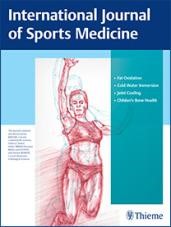Background: One common component of concussion rehabilitation is a computerized cognitive test free of concomitant physical demands. Healthcare professionals may be able to provide more patient-centered care after a diagnosed concussion if specific areas of impairment are identified and treated, such as the physical aspect of neurocognitive function. Hypothesis/Purpose: To evaluate the test-retest reliability of a unique combination of neurocognitive assessment tools currently utilized in concussion assessments into one single, inclusive instrument that measures both neurocognitive function and physical capability.
Study Design: Original research – diagnostic tests.
Methods: Fourteen individuals (nine males, age: 29 + 17.9, five females, age: 46.0 ± 21.5 years) either with normal cognitive function (NBI) without history of a health event (e.g. cerebral vascular accident/stroke, mTBI) that resulted in brain injury within one year of the study, or who had suffered a health event that has resulted in a medically documented brain injury (BI) participated in the study. Participants completed the full hybrid assessment instrument for a baseline test, then completed a follow-up test using the same instrument within 72-96 hours of baseline. Test-retest reliability was measured using Pearson product-moment correlations of the first and second testing sessions, and a two-way ANOVA (group between factor: NBI and BI and time within factor: session 1 and session 2) was performed on the summative scores to determine differences between each group.
Results: Test-retest reliability was strong and statistical significant for both the NBI (r = .858, p = .014) and the BI (r = .967, p =.033) groups. There was a significant difference between summative scores for the NBI and BI groups (F1,20 = 42.325, p < .0001).
Conclusion: The newly created Comprehensive Instrument for Evaluating Mild Traumatic Brain Injury (CIEMTBI) demonstrates good test-retest reliability and was able to discriminate the results between individuals in the NBI and BI groups. Further research, specifically with different samples, is needed to better determine the reliability and diagnostic accuracy of the instrument.
Summary Points:
- The King-Devick Test was used for evaluating saccades, attention, concentration, reading ability, and language skills as part of a larger test battery called the Comprehensive Instrument for Evaluating Mild Traumatic Brain Injury (CIEMTBI).
- The test-retest reliability was strong for both the non-brain injury group (r = .858, p = .014) and the brain injury group (r = .967, p = .033).
- Both groups showed that the outcomes were repeatable and stable between testing sessions.
- There was a significant difference between the non-brain injured and the brain injury groups with the non-brain injury group performing the K-D Test significantly faster than the brain injury group (F1,19 = 37.667, P<0.0001) which could allow for improved monitoring of patients with concussion and recovery periods.

